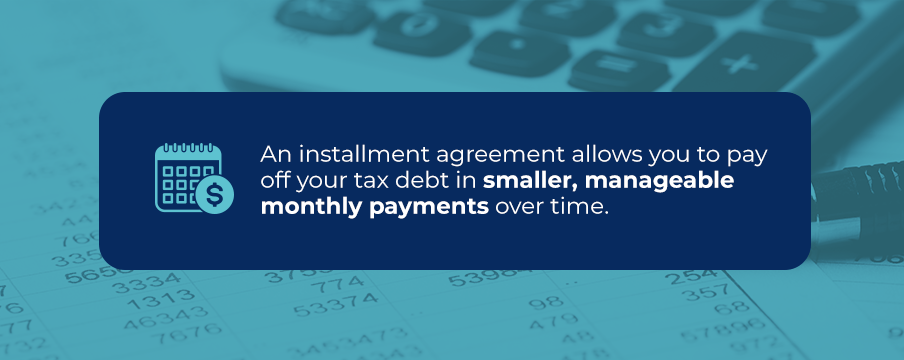What are the implications of failing to pay taxes? Is there any solution for those who cannot afford to pay? If yes, what are the options and processes involved? This guide answers these questions and discusses how a tax professional can assist. BC Tax helps people with challenges paying their taxes through effective, personalized and affordable services.
What Happens if You Can’t Pay Your Taxes?
There are many possible consequences if you are unable to pay taxes. These include:
1. Penalties and Interest
When you fail to pay your taxes by the due date, the IRS or state tax agency will typically impose penalties and interest on the unpaid tax balance. The federal failure-to-pay penalty is 0.5% of unpaid taxes for each month or part of the month the tax remains unpaid, up to a maximum of 25%. Additionally, the interest on the unpaid amount accrues from the due date until the amount is fully paid. The interest rate is determined quarterly and is the federal short-term rate plus 3%.
State penalties and interests vary depending on the tax laws. If you owe state and federal taxes, the two will compound simultaneously, which can impose a significant financial burden. It is essential to take swift action if you find yourself in such a situation.
2. Tax Liens
A tax lien is a legal claim against your property if you fail to pay your tax debt. It allows the IRS or state tax entity to secure its interest in your assets. Assets subject to a lien include real estate, personal property and financial accounts. A lien can significantly impact your financial health, including your credit score, making obtaining loans or refinancing your property challenging.
A tax lien can also complicate the sale of your home or other assets, as potential buyers may hesitate to purchase properties with existing liens. The tax agency may release the lien once you pay off your tax debt, but until then, it can be a substantial hurdle in managing your financial affairs.
3. Tax Levies
A tax levy is more severe than a lien. It involves the actual seizure of your assets. For example, the federal or state tax agency can seize funds from your bank account or garnish your wages, meaning a portion of your earnings will be withheld and sent directly to the IRS or state tax agency. This process can continue until your tax balance is paid in full.
The agency may also seize property such as vehicles or real estate and sell it if necessary. Unlike liens, levies can lead to immediate financial distress, making it challenging to cover living expenses and meet other financial obligations. To avoid levies, communicate with the tax agency and explore available options for resolving your tax debt before it escalates to this level.
4. Legal Action
While most cases of unpaid taxes result in liens and levies, there are instances where failure to pay taxes can lead to criminal charges. The agencies primarily focus on collecting taxes owed instead of pursuing criminal cases. However, if they suspect fraud or willful evasion of tax responsibilities, they may initiate criminal proceedings against you. Possible sanctions include substantial fines, a term of imprisonment or both.
Criminal charges are rare compared to civil penalties but underscore the importance of addressing tax obligations seriously and honestly. Engaging in fraudulent activities or intentionally misleading the tax agency can jeopardize your finances and result in other long-term consequences.

What to Do if You Can’t Afford to Pay Taxes
You have several options if you can’t afford your taxes:
1. Consider an Installment Agreement
One of the most common solutions is setting up an installment agreement with the tax agency. Generally, this arrangement allows you to pay off your tax debt in smaller, manageable monthly payments over time. Installment agreements can reduce immediate financial strain. The eligibility requirements and application processes differ under federal and state law, but the former involves the following:
- Determine the type of installment agreement, whether short- or long-term.
- Apply using the online platform, by phone or by mail by submitting Form 9465, an installment agreement request.
- Provide information about your income, expenses or assets.
- Wait for a response and follow up where necessary to get updates.
Remember, interest and penalties continue to accrue until the debt is paid, even when you get an installment agreement.
2. Explore an Offer in Compromise (OIC)
An OIC is an IRS program that allows qualified taxpayers to pay less taxes than what they owe. This option is beneficial if you are experiencing financial hardship or if paying the full amount would create an undue burden. To qualify, you must demonstrate that paying your entire tax liability is not feasible based on your income, expenses and asset situation.
The application process involves submitting Form 656 along with supporting documentation about your finances. While only selected taxpayers qualify for an OIC, it can be a valuable tool for resolving a tax liability.
3. Consider Currently Not Collectible (CNC) Status
Taxpayers with serious financial challenges who cannot manage an installment agreement may qualify for a CNC status. This status temporarily halts collection actions, allowing you some breathing room during tough financial times. To apply, you must provide detailed information about your financial situation, including income, expenses and assets. The IRS will review this information and determine whether to suspend collection efforts. While in CNC status, interest and penalties still accrue on your outstanding balance. However, it temporarily stops aggressive collection tactics like levies and liens.
4. File for Bankruptcy
Filing for bankruptcy is another alternative when your tax debt becomes overwhelming. Bankruptcy wipes your slate clean, giving you a fresh start to put your finances in place. Nonetheless, there are repercussions. For example, it can affect your credit score for many years, making it difficult to secure a loan. Additionally, you may not file for bankruptcy again for seven years. If you accrue additional tax debt during this time, you will typically be required to pay regardless of the situation.
Why You Should Work With a Tax Professional
Tax professionals provide invaluable services. Here are four reasons why you need them:
- Knowledge and experience: Tax professionals can help you navigate complex tax laws and processes.
- Save time and money: They can avoid costly errors and help you get the best possible outcome.
- Reduce stress: Tax professionals can take over daunting tasks like applying for relief options and following up on requests.
- Get effective representation: An experienced tax professional can represent you before the federal or state tax agencies, increasing your chances of success.
Tax professionals like licensed enrolled agents can take the load off your shoulders and help resolve your issue effectively.
Contact the Professionals at BC Tax
BC Tax has years of experience helping people resolve their tax issues. We are the ideal partner if you have an unpaid tax balance and need assistance finding a solution. Our licensed enrolled agents have handled similar problems and will leverage our resources to develop a practical solution. We will listen attentively and guide you throughout the process. If you need help urgently, contact us today!

 1-800-548-4639
1-800-548-4639









